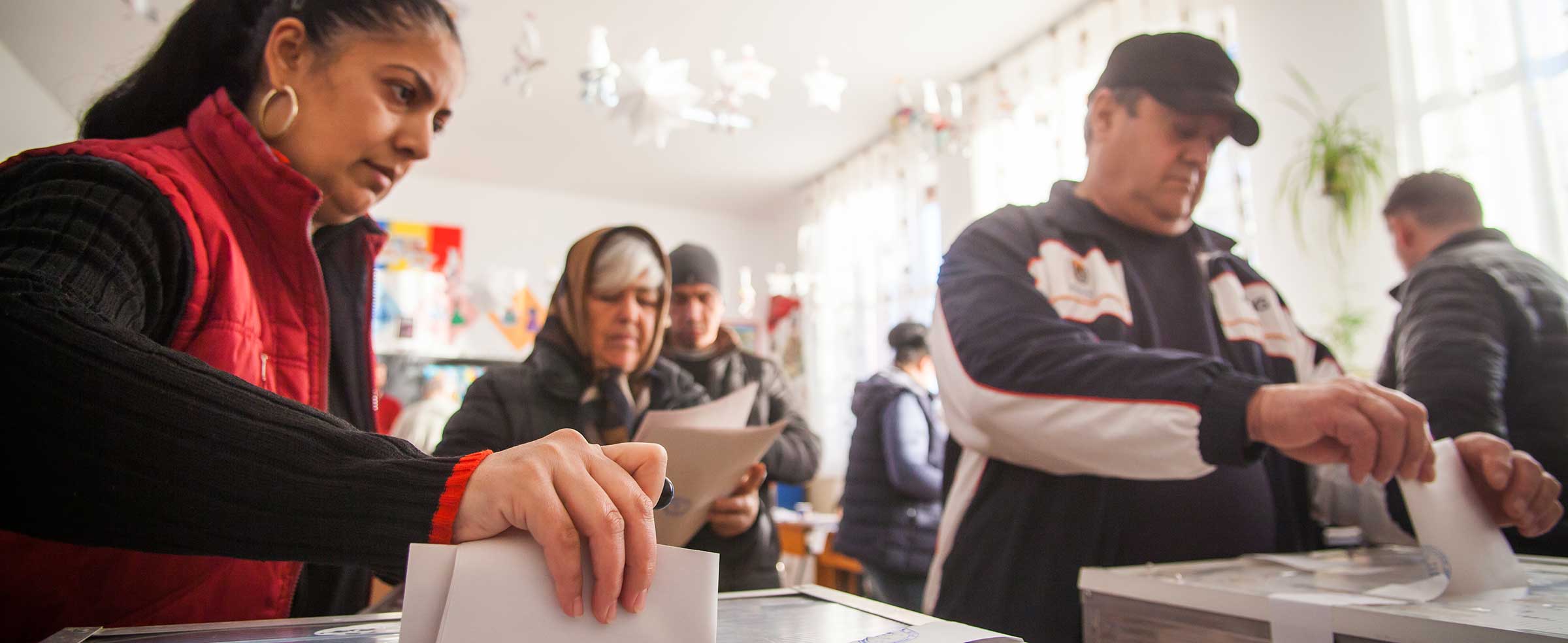Don’t let angry protestors fool you — Canadians still trust in our democracy

Certain truths seem self-evident: We are all created equal. The sun rises in the east and sets in the west. Our democracy is imploding under the strain of declining trust and increasing polarization.
The first two we should accept, but the characterization of our democracy as nearing collapse does not fit the facts, at least not in Canada. The trends run in the opposite direction: trust in many of our democratic institutions is actually growing, and the gaps between the political left and right are in fact narrowing. This helps put the troubling scenes of gravel-throwing anti-vaccine protestors in context: it is not just that they are a small minority — it is that the protestors and the majority of Canadians are moving in completely opposite directions.
Our regular Environics Institute surveys show that three in four Canadians are satisfied with the way democracy works in this country — a proportion that has held steady over the past 10 years. An equal number are satisfied with the way our political system works, but in this case, satisfaction has risen. Feelings of pride in the Canadian political system and of respect for our political institutions have both also been gradually increasing.
It is true that only a minority of Canadians have a lot of trust in Parliament or in political parties — a degree of healthy skepticism that is neither surprising nor problematic. But over 80 per cent have at least some trust. And the trends again are positive: strong trust in Parliament has risen by 19 points since 2010, including a 10-point increase since the previous survey in 2019. Strong trust in Parliament is now twice as high as it was just seven years ago; weak trust is now almost twice as low. The change in the case of trust in political parties is more modest, but in the same positive direction.
While the anger seen on the campaign trail makes our politics seem highly polarized, this too is a misleading impression. Our research shows that, in many cases, the views about our democracy among those on the left and right of the political spectrum have actually become more similar over the past few years, rather than diverging. And while it goes without saying that the Conservatives draw more support from those on the right and the NDP attracts more of those on the left, the fact is that the Liberals, Conservatives and NDP each draw a majority of their support from those who place themselves in the centre. The electorate is not divided into hostile camps separated by a widening, unbridgeable gulf.
But there is one measure in our survey that has shown a sudden decline: national pride. Almost all of us continue to feel at least some pride in being Canadian, but in our latest survey, this pride is less strongly expressed — a change likely linked to the discovery earlier this year of hundreds of graves of Indigenous children at the sites of former residential schools. Our survey began right after Canada Day, when many Canadians were discussing what these discoveries mean for the country. As these discussions unfolded, flags were lowered to half-mast, and feelings of national pride became more muted.
But this too is more the sign of a healthy democracy than one in crisis. It is reassuring to see that the revelations about residential schools upset our self-image. The shift in the tone of Canada Day from celebration to reflection did not occur only among a handful of political insiders, but among many ordinary citizens as well. This is a sign of a democracy in which minds remain open, and backs are not turned on one another.
As voting day approaches, there is no better time to bring the image we have of our democracy into alignment with the evidence. Angry antimask or antivaccination protestors fuelled by misinformation are currently a security and public health risk, but they are not the tip of a larger iceberg that reflects broader public opinion.
Canada is not the United States, and what has happened there (and elsewhere) does not always foreshadow events here. In a year filled with so much bad news, let’s open the curtains to welcome at least one ray of sunshine.Michael Adams is the founder and president of the Environics Institute for Survey Research. Andrew Parkin is the institute’s executive director.
Like what you're reading? With our bi-monthly e-newsletter, you can receive even more with the latest details on current projects, news, and events at the institute.
Subscribe